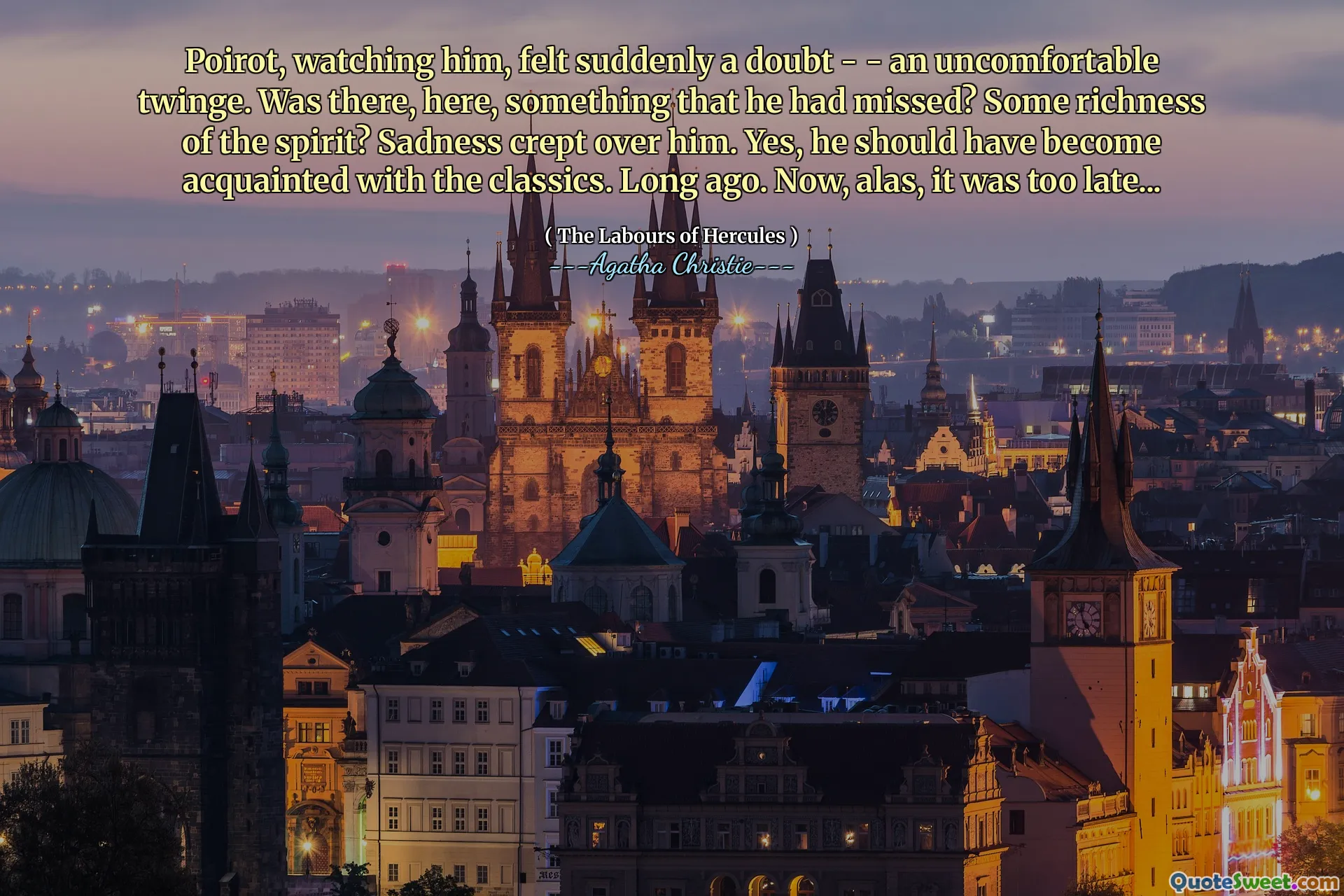
Poirot, watching him, felt suddenly a doubt - - an uncomfortable twinge. Was there, here, something that he had missed? Some richness of the spirit? Sadness crept over him. Yes, he should have become acquainted with the classics. Long ago. Now, alas, it was too late...
This excerpt poignantly captures the introspective moment of Poirot, a character renowned for his meticulous reasoning and deductive prowess. Here, the sense of regret and lost opportunity resonates deeply; Poirot, known for his sharp intellect, feels the sting of having overlooked something fundamental—an appreciation for the richness of the human spirit that classical literature and art can cultivate. This realization underscores a universal truth: intellectual prowess alone may not suffice in understanding the depth of human nature and emotions. The phrase 'some richness of the spirit' evokes the idea that the essence of humanity extends beyond logical deduction—it encompasses empathy, cultural knowledge, emotional intelligence, and an appreciation for life's subtleties. Poirot's sadness, creeping in as he reflects on a missed chance to engage with the classics, evokes a sentiment familiar to many: the sense of regret about opportunities lost or delayed. It touches on the importance of cultivating one's inner life and continuous learning, regardless of age or circumstances. By lamenting that it's 'too late,' the quote highlights a poignant human fear—the regret of having missed vital experiences that could have enriched our understanding and appreciation of the world. It serves as a gentle reminder that the pursuit of knowledge and understanding is ongoing, and that embracing culture and the arts can fulfill a profound part of human existence. This mindset inspires readers to remain curious, open, and eager to explore new realms of knowledge at every stage of life.






